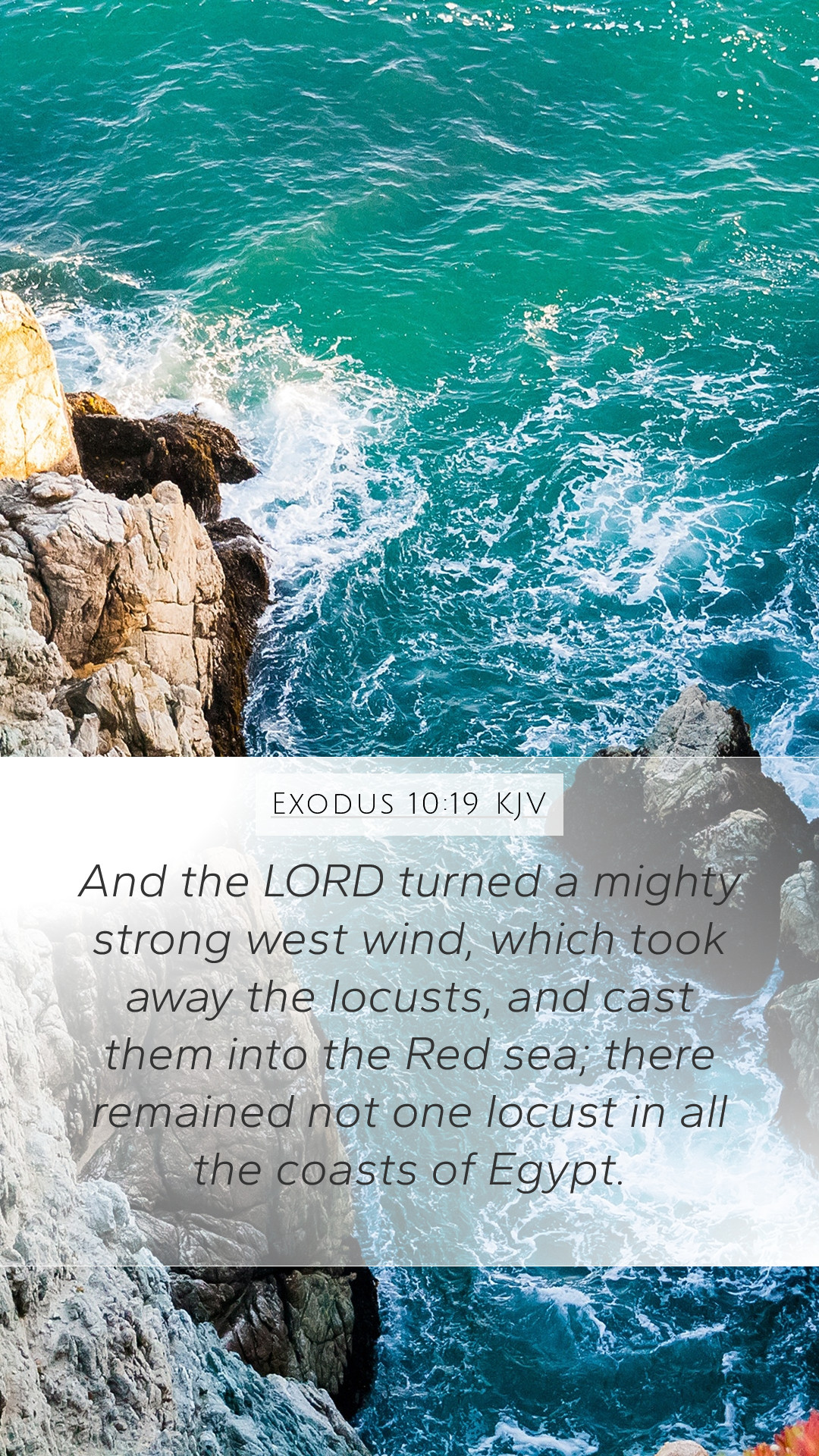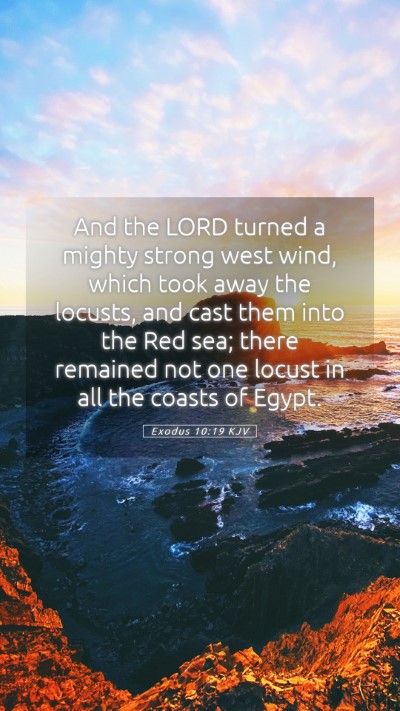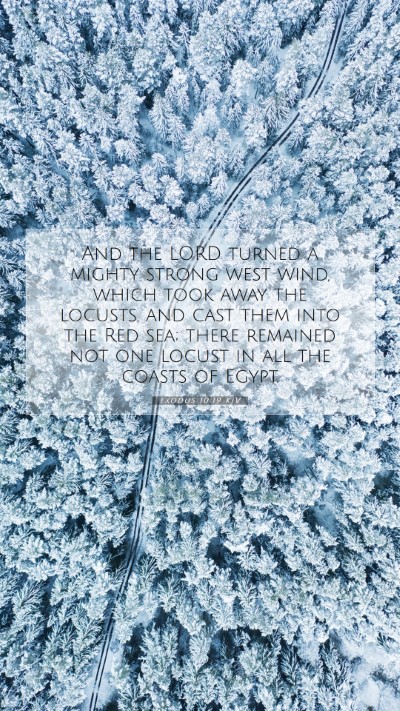Bible Verse Meaning and Commentary on Exodus 10:19
Exodus 10:19 states: "And the LORD turned a mighty strong west wind, which took away the locusts, and cast them into the Red sea; there remained not one locust in all the coasts of Egypt." This verse signifies the power of God in delivering His people from the plagues that befell Egypt, demonstrating His authority over creation and the futility of opposing His will. Below are combined insights from various public domain commentaries.
Overview of Exodus 10:19
In this verse, we witness an important moment in the history of the Israelite exodus from Egypt. The removal of the locusts symbolizes not only a physical deliverance but also highlights God’s sovereignty and His willingness to protect His people from the consequences of their oppressors' sin.
Insights from Matthew Henry
Matthew Henry notes that the strong west wind orchestrated by God is indicative of His omnipotence. Henry emphasizes that this act was a divine response to Pharaoh's hardened heart. It signifies God's ability to command natural elements to fulfill His purposes. The complete removal of the locusts represents God's thorough cleansing of the land, reminding us of the spiritual cleansing He offers to those who repent.
Remarks by Albert Barnes
Albert Barnes discusses the significance of the west wind, describing it as not merely a meteorological event but a sign of divine intervention. He posits that this act not only serves to alleviate the suffering of the Israelites but also to demonstrate God’s power over the natural world and His judgment upon Egypt. Barnes interprets the finality of the locusts' destruction as God's decisive action against those who oppose His will.
Comments from Adam Clarke
Adam Clarke elaborates on the logistics of the event, noting that the expulsion of the locusts into the Red Sea was a fulfillment of God’s promise to bring judgment upon Egypt. Clarke observes that by using a wind, God illustrates His control over creation, which can be turned against His enemies. His commentary reminds us of the significance of trusting in God’s deliverance, as He can remove obstacles through means beyond human understanding.
Thematic Interpretations
The main themes emerging from Exodus 10:19 include:
- Divine Sovereignty: God’s will prevails against the forces opposing His purpose.
- Judgment Against Evil: The elimination of the plagues signifies judgment against Egypt for their oppression of Israel.
- Restoration and Deliverance: The act of removing the locusts symbolizes hope and restoration for the Israelites as they journey toward freedom.
Application of the Verse
Understanding Exodus 10:19 can offer valuable lessons for believers today. It teaches us about the importance of trusting in God’s power to deliver us from our troubles. The scripture also reminds us that no situation is beyond God's ability to change. Christians can apply this by looking to God in faith when faced with challenges, confident that He can bring restoration and deliverance.
Related Bible Cross References
Here are some related Bible verses that complement the message of Exodus 10:19:
- Exodus 9:22-25: The plague of hail, showcasing God's control over nature.
- Exodus 14:21-22: God's parting of the Red Sea, displaying His deliverance power.
- Psalms 78:46: God's judgment on locusts in history, affirming His authority.
Conclusion
Exodus 10:19 serves as a powerful testament to God's unwavering commitment to His people and His sovereign authority over the natural world. Through various commentaries, we grasp a deeper understanding of this scripture, gaining insights into its broader implications on faith, deliverance, and trusting God's plans amidst adversity. As we reflect on this verse, we encourage further Bible study and engagement with similar passages to enrich our understanding of Scripture.


